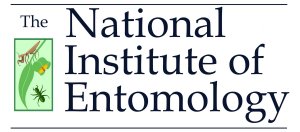Ants prove superior to humans in group problem-solving maze experiment
By Weizmann Institute of Science
Published December 23, 2024
Phys.org
From the Article:
'Prof. Ofer Feinerman and his team at the Weizmann Institute of Science have used this shared trait to conduct a fascinating evolutionary competition that asks the question: Who will be better at maneuvering a large load through a maze? The surprising results, published in the Proceedings of the National Academy of Sciences, shed new light on group decision making, as well as on the pros and cons of cooperation versus going it alone.
To enable a comparison between two such disparate species, the research team led by Tabea Dreyer created a real-life version of the "piano movers puzzle," a classical computational problem from the fields of motion planning and robotics that deals with possible ways of moving an unusually shaped object—say, a piano—from point A to point B in a complex environment.
Instead of a piano, the participants were given a large T-shaped object that they had to maneuver across a rectangular space divided into three chambers connected by two narrow slits.
The researchers created two sets of mazes that differed only in size, to match the dimensions of ants and humans, as well as groups of different sizes. Recruiting study participants was easier in the case of humans, who volunteered simply because they were asked to participate, and probably because they liked the idea of a competition. Ants, on the other hand, are far from competitive. They joined because they were misled into thinking that the heavy load was a juicy edible morsel that they were transporting into their nest.'
The Species:
'The ants chosen to compete against Homo sapiens were Paratrechina longicornis. They are called this because of their long antennae, though they are sometimes referred to as "crazy ants" for their tendency to dash around. This familiar species of black ant, about 3 mm long, is common around the world. In Israel they are particularly prevalent along the coast and in the south of the country.'
The Competition:
'The ants tackled the maze challenge in three combinations: a single ant, a small group of about seven ants and a large group of about 80. Humans handled the task in three parallel combinations: a single person, a small group of six to nine individuals and a large group of 26.
To make the comparison as meaningful as possible, groups of humans were in some cases instructed to avoid communicating through speaking or gestures, even wearing surgical masks and sunglasses to conceal their mouths and eyes. In addition, human participants were told to hold the load only by the handles that simulated the way in which it is held by ants. The handles contained meters that measured the pulling force applied by each person throughout the attempt.'
The Results:
'Unsurprisingly, the cognitive abilities of humans gave them an edge in the individual challenge, in which they resorted to calculated, strategic planning, easily outperforming the ants.'
'In the group challenge, however, the picture was completely different, especially for the larger groups. Not only did groups of ants perform better than individual ants, but in some cases they did better than humans. Groups of ants acted together in a calculated and strategic manner, exhibiting collective memory that helped them persist in a particular direction of motion and avoid repeated mistakes.
Humans, on the contrary, failed to significantly improve their performance when acting in groups. When communication between group members was restricted to resemble that of ants, their performance even dropped compared to that of individuals. They tended to opt for "greedy" solutions—which seemed attractive in the short term but were not beneficial in the long term, and—according to the researchers—opted for the lowest common denominator.'
"Our findings validate this vision. We've shown that ants acting as a group are smarter, that for them the whole is greater than the sum of its parts. In contrast, forming groups did not expand the cognitive abilities of humans. The famous 'wisdom of the crowd' that's become so popular in the age of social networks didn't come to the fore in our experiments."
Figure 1: Ants and humans compete in maneuvering a T-shaped load across a maze. Credit: Weizmann Institute of Science
Full Article Here: https://phhttps://phys.org/news/2024-12-ants-superior-humans-group-problem.htmlys.org/news/2024-12-ants-superior-humans-group-problem.html
Watch the experiment in action here:
www.youtube.com/watch?v=ZHpu7ngQxwE&embeds_referring_euri=https%3A%2F%2Fphys.org%2F


 O-Sense
O-Sense